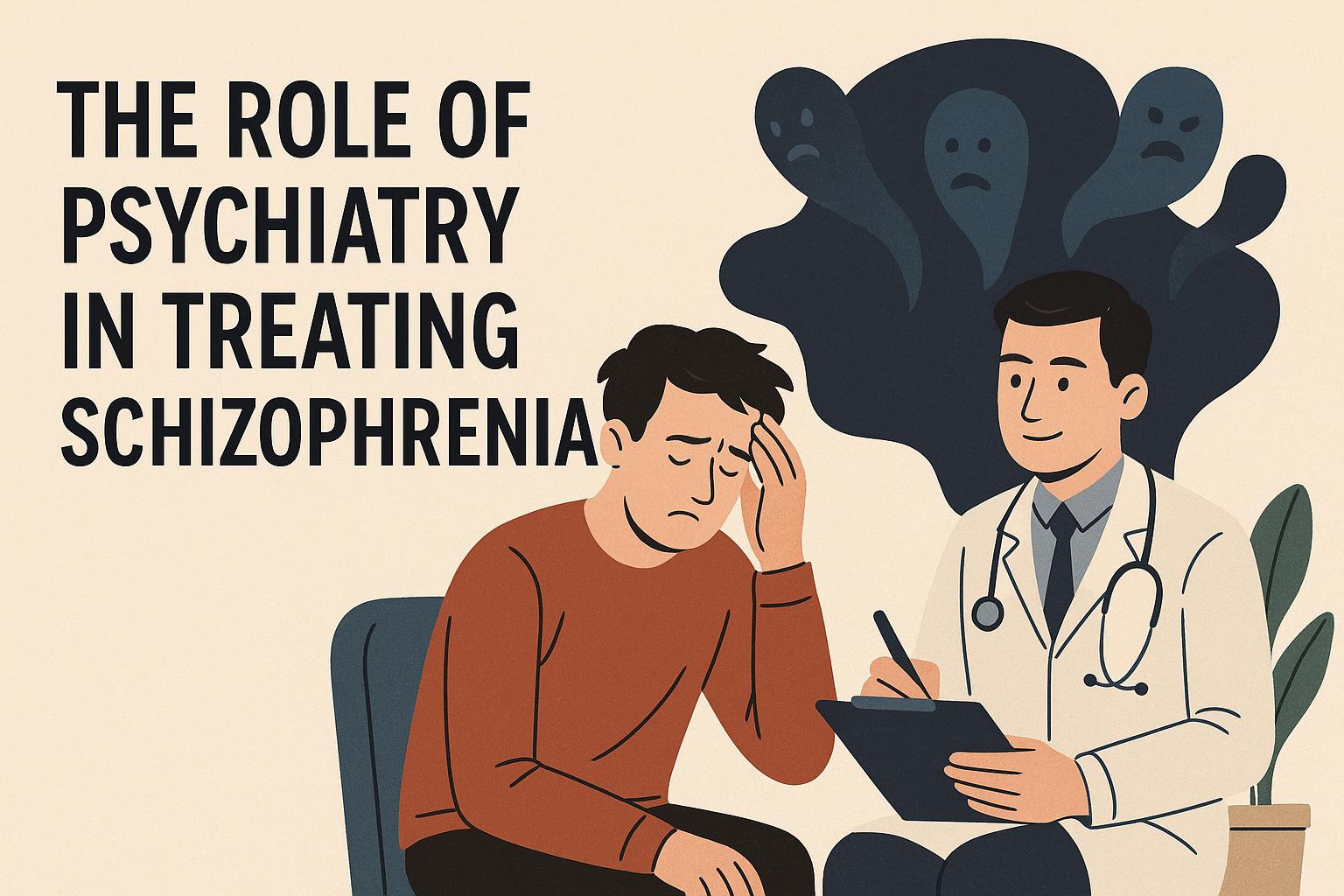Understanding Schizophrenia
Schizophrenia is a profoundly intricate mental health disorder that profoundly affects various facets of an individual’s life, including the ability to think clearly, regulate emotions, make informed decisions, and engage socially with others. It is marked by episodes of psychosis, which can manifest through symptoms such as hallucinations — sensory experiences that seem real but are created by the mind — and delusions, which are strong beliefs in things that are not true or present. The field of psychiatry holds a significant role in the diagnosis, treatment, and ongoing management of schizophrenia, offering a multi-faceted approach to understanding and addressing this condition.
Diagnosis of Schizophrenia
The process of diagnosing schizophrenia is complex and requires a comprehensive psychiatric evaluation. Psychiatry plays a central role in ensuring that the diagnosis is accurate and based on a holistic understanding of the individual. Diagnosing schizophrenia typically involves a series of steps including a thorough personal interview aimed at eliciting detailed information about the individual’s symptoms, experiences, and their impact on daily functioning. Additionally, reviewing the person’s psychiatric history provides insights into patterns and other relevant mental health issues that might coexist with schizophrenia. In certain instances, neuroimaging or other medical tests may be employed to rule out neurological conditions or other medical issues that might mimic schizophrenia. The diagnostic criteria for schizophrenia are often derived from the Diagnostic and Statistical Manual of Mental Disorders (DSM-5), which offers a standardized framework for identifying mental health disorders across clinical settings.
Treatment Approaches
Treating schizophrenia involves a comprehensive strategy that combines medication, psychotherapy, and community support services. This holistic approach is essential in managing both the biological and psychological aspects of the disorder, thereby enabling individuals to lead more stable and fulfilling lives.
Medication
Medications form the cornerstone of schizophrenia treatment, with antipsychotics being the primary medication prescribed. These drugs are instrumental in alleviating symptoms such as hallucinations and delusions. Antipsychotics are divided into two categories: first-generation and second-generation. Second-generation antipsychotics are often preferred due to their reduced side effects, which can include less impact on neurological functioning compared to their predecessors. However, the response to these medications can vary significantly from one person to another, necessitating careful and ongoing monitoring by a psychiatrist to tailor treatment according to individual needs and minimize potential side effects.
Psychotherapy
While medication addresses the physiological components of schizophrenia, psychotherapy provides critical psychological support and intervention. Cognitive-behavioral therapy (CBT) is a common therapeutic approach used to help individuals recognize and alter negative patterns of thinking and behavior that contribute to their symptoms. Psychiatrists and psychologists often collaborate to implement these therapeutic strategies, providing patients with comprehensive care that addresses their needs beyond medication alone.
Community Support and Rehabilitation
Community support and rehabilitation programs are integral to helping individuals with schizophrenia integrate into society and lead productive lives. These programs focus on empowering individuals with necessary life skills, thus promoting independence and fulfillment. Psychiatrists often work in conjunction with social workers and other healthcare providers to ensure that individuals have access to essential community resources, social skills training, and employment support. These collaborative efforts are designed to support the individual’s mental health recovery and enhance their quality of life.
Importance of Early Intervention
Early intervention in schizophrenia is paramount for improved outcomes. Initiating treatment at an early stage can significantly reduce the severity of symptoms, decrease the frequency and impact of psychotic episodes, and enhance the long-term prognosis of the individual. By preserving social and occupational functioning, early intervention strategies contribute to better integration into society and greater overall well-being. Psychiatric professionals emphasize the importance of recognizing early symptoms and initiating treatment promptly to optimize these benefits.
The Role of Family and Caregivers
The involvement of family members and caregivers is crucial in the psychiatric treatment of schizophrenia. Educating these individuals about the condition, its manifestations, and available treatment options is essential for providing effective support. Psychiatrists often play a key role in guiding family members and caregivers in understanding symptoms, managing difficult behaviors, and implementing strategies that can enhance the quality of life for their loved ones. Empowering families with knowledge and resources strengthens the support system surrounding the individual with schizophrenia, fostering an environment conducive to recovery and stability.
Research and Advances
Ongoing research in the field of psychiatry continues to unveil new insights and potential treatments for schizophrenia. Contemporary studies in psychopharmacology focus on developing medications that are more effective and exhibit fewer side effects. Additionally, research exploring the genetic and environmental factors contributing to schizophrenia aims to uncover the underlying causes of the disorder, paving the way for more personalized treatments. Advancements in neuroimaging techniques also hold promise for enhancing our comprehension of schizophrenia’s impact on the brain, guiding the development of more targeted therapeutic interventions. Together, these efforts contribute to a growing body of knowledge that informs ever-evolving management strategies for schizophrenia.
Conclusion
The role of psychiatry in the treatment and management of schizophrenia is both comprehensive and dynamic, encompassing diagnosis, medication management, psychotherapy, and collaboration with other healthcare professionals and families. As research in psychiatry continues to evolve, it ushers in new possibilities for more targeted therapies that have the potential to significantly improve the quality of life for individuals affected by schizophrenia. For further insights into this disorder, individuals are encouraged to explore resources from the National Institute of Mental Health, which offer up-to-date information and support options for those affected by schizophrenia and their loved ones.
This article was last updated on: November 26, 2025

